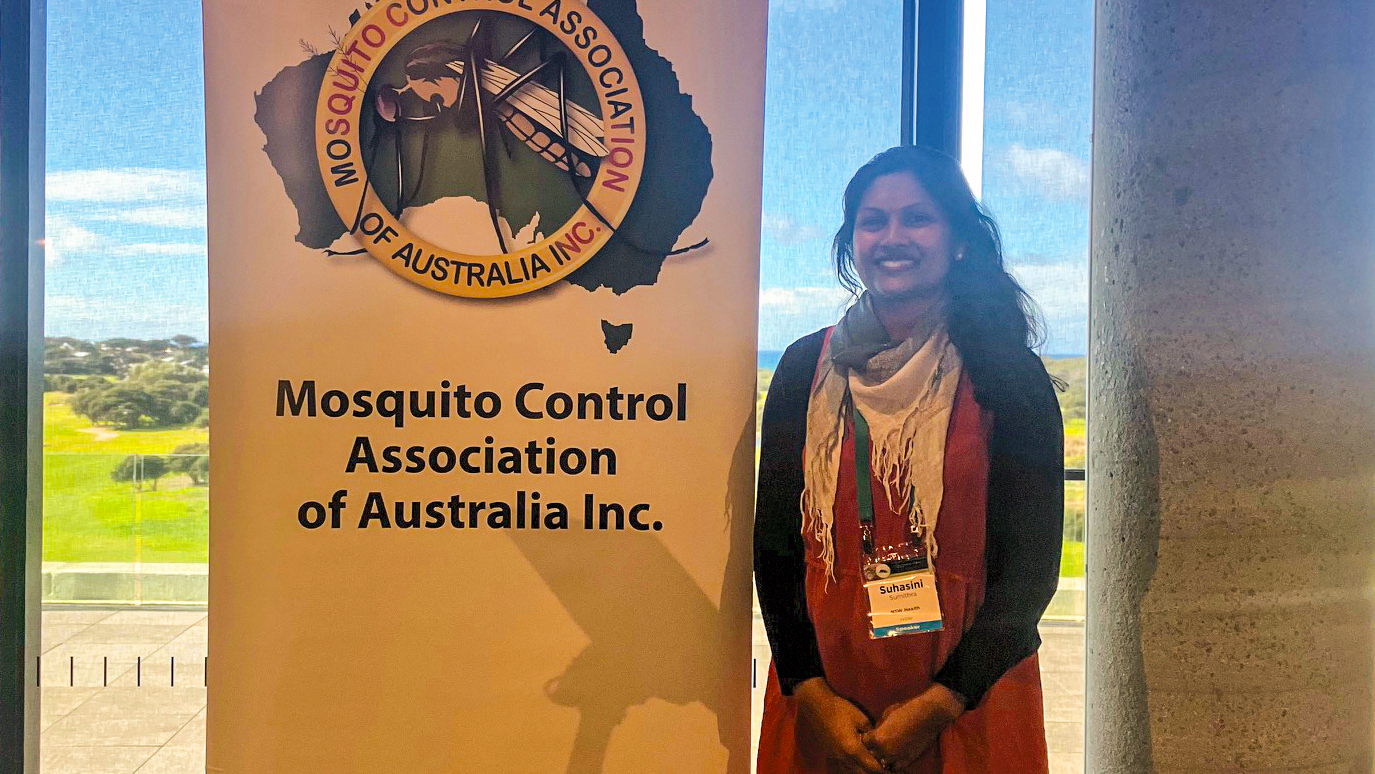Two hats, one conference: reflections from the MCAA/ARA symposium
This Jason Passioura Bursary report is written by MPhil Candidate Suhasini Sumithra. Suhasini's research focuses on predictive modelling of Ross River virus in NSW, aiming to develop a practical tool to support risk communications and policy.

I attended the 16th Mosquito Control Association of Australia (MCAA) and 14th Arbovirus Research in Australia (ARA) symposium at the stunning RACV Resort Torquay, Victoria, from 25-28 August.
I was joined by participants from around Australia, comprising a diverse mix of academics, entomologists, state and national government representatives and local councils.
As both an MPhil candidate with NCEPH and an employee of NSW Health working on issues related to environmental health surveillance and risk, I was able to wear two hats at the conference. I presented two talks: one on predictive modelling of Ross River virus (wearing my ANU hat) and arbovirus surveillance and mosquito monitoring in NSW (wearing my NSW Health hat).
The symposium was super engaging and interactive, and by the end of the week I heard talks on a whole range of interesting topics including:
- arbovirus surveillance and emerging risks such as Buruli ulcer and Japanese encephalitis virus across Australia,
- challenges and solutions for mosquito management both in Australia and abroad,
- using citizen science data for vector-borne disease surveillance and prediction,
- social behavioural factors influencing mosquito borne disease prevention and effective risk communications,
- exotic mosquito threats and challenges for Australia,
- and novel techniques for mosquito surveillance and control, including drones and artificial intelligence for mosquito identification.
Over the course of the symposium, I had many informal discussions with participants, which enabled me to have more of a deep dive into certain projects and research being done by colleagues across different sectors that can help inform the work that I’m doing both as part of my MPhil and at NSW Health.
It was pleasing to hear several talks on modelling of vector-borne diseases and to learn from presenters and informal discussions about the methods they are using and whether those methods may be applicable to the work that I’m doing.
It was also great to participate in a student panel and hear about the diverse career paths that that people who have an interest in mosquitoes and vector-borne diseases can take.
I am very grateful to the NCEPH Scholarships Committee for supporting my attendance at the MCAA through the Jason Passioura Bursary, which supports students or researchers using spatial analysis to undertake activities in pursuit of their research goals.
